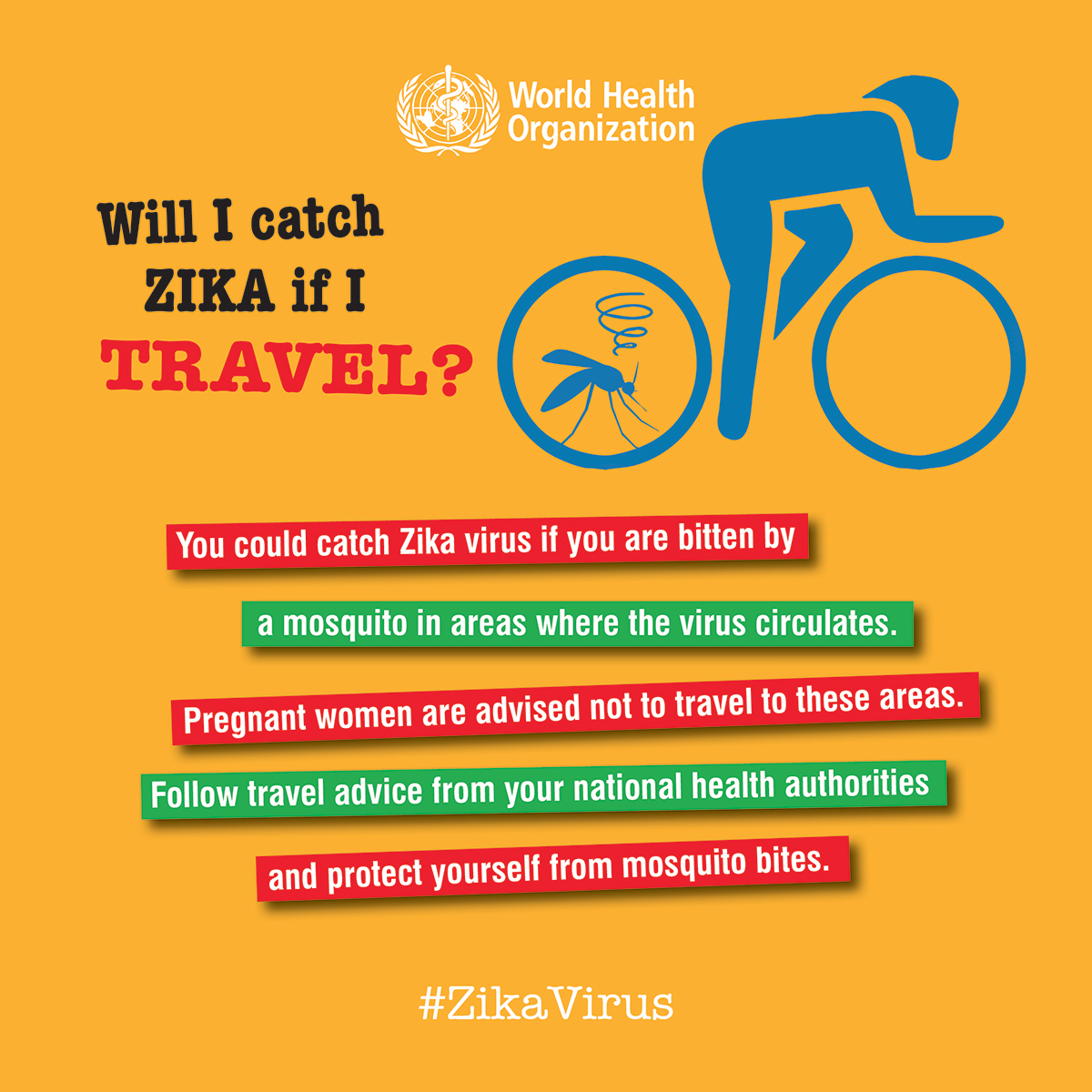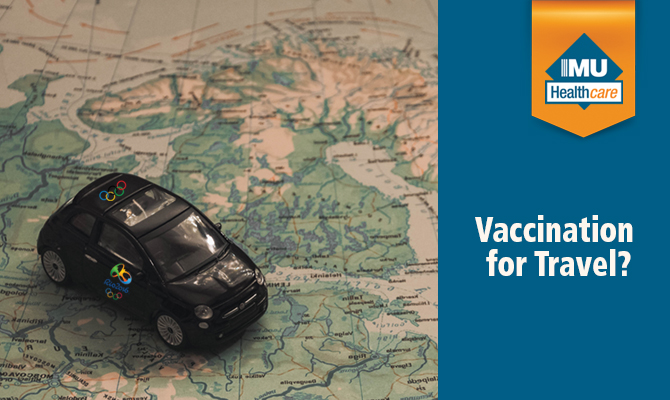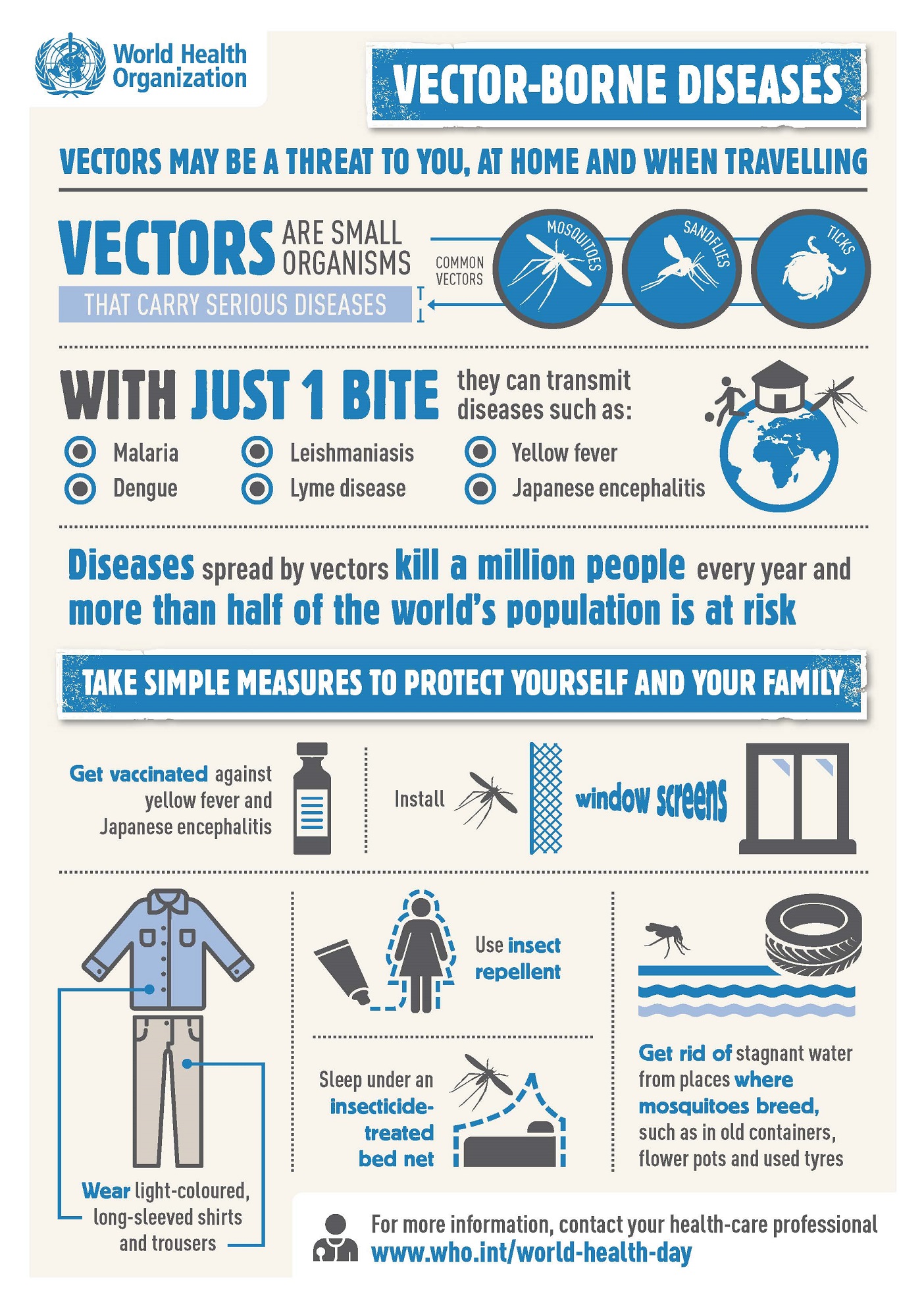Sports enthusiasts all around the world have eagerly awaited “Rio 2016” since 2009, when it was announced that Brazil was to be the first ever South American country to host the Olympics. Finally, after eight long years of anticipation, the world’s greatest sporting event is just a few days away! Even if sports put you to sleep, visiting Rio during this exciting and festive time is sure to be a treat. With mountains, jungles and beaches galore, Rio de Janeiro is a South American gem. This being said, it would be foolish to jump aboard a plane to Brazil without being fully aware of the health risks. In the last year the Zika Virus has become a headline staple. It is rather unfortunate that outbreak of the virus in Brazil coincided with the Summer Olympics, a time where there would undoubtedly be a mass influx of tourists. To make matters worse, while many of the illnesses common in Brazil can be avoided through vaccinations, there is no available vaccine for the Zika Virus.  From the World Health Organisation (WHO) chronology, it is indicated that the Zika virus is a mosquito-borne flavivirus that was first identified in Uganda in 1947 in monkeys through a network that monitored yellow fever. It was later identified in humans in 1952 in Uganda and the United Republic of Tanzania. The first large outbreak of disease caused by Zika infection was reported from the Island of Yap (Federated States of Micronesia) in 2007. In July 2015 Brazil reported an association between Zika virus infection and Guillain-Barré syndrome. In October 2015 Brazil reported an association between Zika virus infection and microcephaly. WHO international alerts explained that the Zika virus is primarily transmitted to people through the bite of an infected mosquito from the Aedes genus, mainly Aedes aegypti in tropical regions. Aedes mosquitoes usually bite during the day, peaking during early morning and late afternoon/evening. This is the same mosquito that transmits dengue, chikungunya and yellow fever. In pregnant mothers, the disease could be transmitted from mother to child. Sexual transmission of Zika virus is also possible. Other modes of transmission such as blood transfusion are being investigated.
From the World Health Organisation (WHO) chronology, it is indicated that the Zika virus is a mosquito-borne flavivirus that was first identified in Uganda in 1947 in monkeys through a network that monitored yellow fever. It was later identified in humans in 1952 in Uganda and the United Republic of Tanzania. The first large outbreak of disease caused by Zika infection was reported from the Island of Yap (Federated States of Micronesia) in 2007. In July 2015 Brazil reported an association between Zika virus infection and Guillain-Barré syndrome. In October 2015 Brazil reported an association between Zika virus infection and microcephaly. WHO international alerts explained that the Zika virus is primarily transmitted to people through the bite of an infected mosquito from the Aedes genus, mainly Aedes aegypti in tropical regions. Aedes mosquitoes usually bite during the day, peaking during early morning and late afternoon/evening. This is the same mosquito that transmits dengue, chikungunya and yellow fever. In pregnant mothers, the disease could be transmitted from mother to child. Sexual transmission of Zika virus is also possible. Other modes of transmission such as blood transfusion are being investigated.  In most cases the Zika virus only manifests very mild symptoms, often not serious enough to warrant a visit to the hospital. However, it becomes especially dangerous when pregnant women are involved, as their infants are put at risk of developing microcephaly, a condition where the infant suffers from abnormal smallness of the head and incomplete brain development. The best advice for avoiding the Zika virus is to ensure you protect yourself from mosquitoes such as by wearing clothes (preferably light-coloured) that cover as much of the body as possible and using insect repellent containing DEET, IR3535 or icaridin according to the product label instructions. Hopefully, mosquitoes would be less prevalent during the Olympic period due to the cold weather. This being said, pregnant women are strongly advised to postpone their trips, as the consequences for their children are very severe. While the Zika virus is attracting a lot of attention for the time being, it is important not to neglect the various other ailments found in Brazil. WHO advised that travellers should make sure that they have taken all the standard childhood immunisations. A booster might even be necessary. The usual childhood vaccinations include: Tetanus and Diphtheria, Whooping cough, Hepatitis B, polio, measles, mumps and rubella (MMR). To emphasise the importance of these vaccines, consider the worst and best case scenario below.
In most cases the Zika virus only manifests very mild symptoms, often not serious enough to warrant a visit to the hospital. However, it becomes especially dangerous when pregnant women are involved, as their infants are put at risk of developing microcephaly, a condition where the infant suffers from abnormal smallness of the head and incomplete brain development. The best advice for avoiding the Zika virus is to ensure you protect yourself from mosquitoes such as by wearing clothes (preferably light-coloured) that cover as much of the body as possible and using insect repellent containing DEET, IR3535 or icaridin according to the product label instructions. Hopefully, mosquitoes would be less prevalent during the Olympic period due to the cold weather. This being said, pregnant women are strongly advised to postpone their trips, as the consequences for their children are very severe. While the Zika virus is attracting a lot of attention for the time being, it is important not to neglect the various other ailments found in Brazil. WHO advised that travellers should make sure that they have taken all the standard childhood immunisations. A booster might even be necessary. The usual childhood vaccinations include: Tetanus and Diphtheria, Whooping cough, Hepatitis B, polio, measles, mumps and rubella (MMR). To emphasise the importance of these vaccines, consider the worst and best case scenario below.
Best case scenario (vaccinated for vacation):
The Malaysian badminton team destroys its competition! We’ve just become world champions! You can’t believe you saw the moment with your own eyes. You stand up and cheer, the crowd is wild with excitement!
Worst case scenario (unvaccinated and unhappy):
You look into the mirror of your hotel room to find that your eyes, face and tongue are red. You feel dizzy and nauseous, and your back is aching. Soon the toxic phase begins, and you are bleeding from your nose, and your heart beat slows down. Your kidney and liver are failing you. This could be the end of your life, you’re suffering from the Yellow Fever!
The scenario might seem over the top or too dramatic, but vaccinations are a useful precautionary measure to ensure that you enjoy your travels in optimum health. Before making a trip to Brazil or any of its neighbours be sure to contact a health professional for advice. Travellers coming to our part of the world will likely take similar precautions! Still not convinced? Well, then you should know that according to the WHO, Brazil is listed as endemic for Yellow Fever, a disease that is non-existent in Malaysia. Travellers are strongly advised to get the Yellow Fever vaccine when travelling to this region, which includes the countries of Colombia, Peru and Venezuela.  While most people remember to get vaccinated and go for check-ups before a journey overseas, not as many undergo post travel health screenings. Especially in our day and age, where the world is becoming increasingly interconnected, it is definitely worth getting a check-up once you’ve arrived back home. Don’t become a national horror story like the travellers who brought Ebola back to their countries! Early detection is key, so even if you are not yet showing symptoms, but you were in a situation where you suspect you could have been exposed to a disease (a crowded, unhygienic place or exposure to animals), it doesn’t hurt to pay a visit to a health professional. Just like being home in Malaysia, when travelling be sure to eat and drink safely. Avoid uncooked roadside vegetables and use your better judgement to pick out meals. A handy mantra to go by is: Boil it, Peel it, Cook it, Wash it or Forget it! Typhoid vaccines, according to U.S. Centers for Disease Control and Prevention, only work 50% – 80% of the time, so even if vaccinated be sure to eat and drink smartly. No matter how adventurous you are when it comes to your stomach, nothing is worth risking a bad case of diarrhoea. Yes, take precautions before, during and after your travels, but don’t let your worries hinder your experience! Brazil is a beautiful country and the Summer Olympics of 2016 is sure to be the sports event of the decade. Enjoy yourselves and make sure to cheer on our home country’s athletes no matter where you travel MALAYSIA BOLEH! References: http://www.timbuktutravelmedicine.ca/posttravelhealthscreening/ - Importance of posttravel health screening http://www.who.int/mediacentre/factsheets/zika/en/ http://www.cdc.gov/ncbddd/birthdefects/microcephaly.html - Microcephaly http://travelvaccines.com.au/travelhealthadvice/yourdestination/Brazil – Vaccine advice for Brazil http://www.who.int/emergencies/zikavirus/timeline/en/ – Zika info (world health organisation) http://www.mayoclinic.org/diseasesconditions/yellowfever/basics/symptoms/con20032263 – Mayo Clinic (yellow fever) http://wwwnc.cdc.gov/travel/destinations/traveler/none/brazil – Yellow Fever is a risk in Brazil http://wwwnc.cdc.gov/travel/diseases/typhoid This article is brought to you by IMU Healthcare.
While most people remember to get vaccinated and go for check-ups before a journey overseas, not as many undergo post travel health screenings. Especially in our day and age, where the world is becoming increasingly interconnected, it is definitely worth getting a check-up once you’ve arrived back home. Don’t become a national horror story like the travellers who brought Ebola back to their countries! Early detection is key, so even if you are not yet showing symptoms, but you were in a situation where you suspect you could have been exposed to a disease (a crowded, unhygienic place or exposure to animals), it doesn’t hurt to pay a visit to a health professional. Just like being home in Malaysia, when travelling be sure to eat and drink safely. Avoid uncooked roadside vegetables and use your better judgement to pick out meals. A handy mantra to go by is: Boil it, Peel it, Cook it, Wash it or Forget it! Typhoid vaccines, according to U.S. Centers for Disease Control and Prevention, only work 50% – 80% of the time, so even if vaccinated be sure to eat and drink smartly. No matter how adventurous you are when it comes to your stomach, nothing is worth risking a bad case of diarrhoea. Yes, take precautions before, during and after your travels, but don’t let your worries hinder your experience! Brazil is a beautiful country and the Summer Olympics of 2016 is sure to be the sports event of the decade. Enjoy yourselves and make sure to cheer on our home country’s athletes no matter where you travel MALAYSIA BOLEH! References: http://www.timbuktutravelmedicine.ca/posttravelhealthscreening/ - Importance of posttravel health screening http://www.who.int/mediacentre/factsheets/zika/en/ http://www.cdc.gov/ncbddd/birthdefects/microcephaly.html - Microcephaly http://travelvaccines.com.au/travelhealthadvice/yourdestination/Brazil – Vaccine advice for Brazil http://www.who.int/emergencies/zikavirus/timeline/en/ – Zika info (world health organisation) http://www.mayoclinic.org/diseasesconditions/yellowfever/basics/symptoms/con20032263 – Mayo Clinic (yellow fever) http://wwwnc.cdc.gov/travel/destinations/traveler/none/brazil – Yellow Fever is a risk in Brazil http://wwwnc.cdc.gov/travel/diseases/typhoid This article is brought to you by IMU Healthcare.









